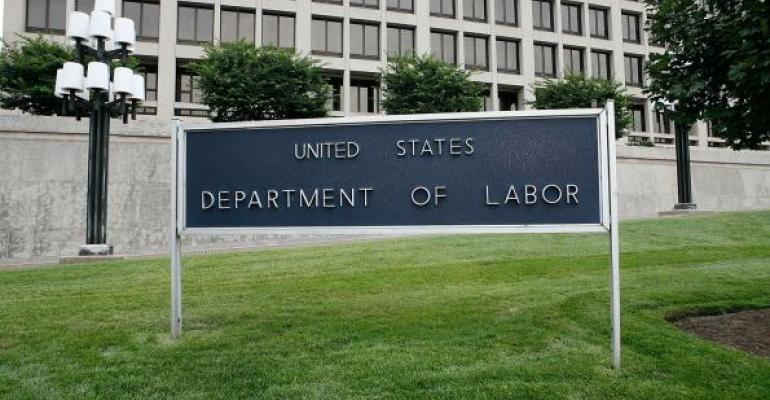This month, the Department of Labor’s Prohibited Transactions 2020-02 (PTE 2020-02) went into effect. This regulation increases the fiduciary scrutiny placed on IRA rollovers and other transactions associated with retirement accounts.
Just like fashions, sometimes regulations come back around. In this instance, the DOL reinstated the five-part test under its 1975 regulation defining who is an "investment advice fiduciary" under the Employee Retirement Income Security Act of 1974 and Section 4975 of the Internal Revenue Code. The five-part test became required for confirming fiduciary status when the DOL’s 2016 fiduciary rule was overturned in 2018. Essentially, that test makes a firm or advisor an investment fiduciary if they, for compensation:
- Render advice or recommend securities
- On a regular basis
- Pursuant to mutual agreement
- Which serves as a primary basis for investment decisions, and
- The advice is individualized for the particular needs of a plan or IRA
PTE 2020-02 is viewed as broadening who is a fiduciary, since prior to its issuance, many advisors would disavow fiduciary status with disclosures when rollovers took place. Initially, the DOL established a nonenforcement transition period for PTE 2020-02 from Feb. 16 through Dec. 20, 2021. This provided a window for advisors and firms to put the required processes in place to comply with the regulation. Based on feedback from various industry participants, on Oct. 25, the DOL issued Field Assistance Bulletin 2021-02, which extended the nonenforcement period through Jan. 31, 2022, for all requirements except for documentation and disclosure to participants, which were extended through June 30, 2022. This provided some breathing room to get processes in place, but didn’t change the sense of urgency we’ve seen from most of our clients and prospects. Particularly because the DOL has also announced that it plans to make further changes to the fiduciary rule, potentially to the five-part test to determine fiduciary status.
401(k) plan investment expenses are generally less than IRAs, and regulators are very focused on fees. It’s not surprising the DOL, with PTE 2020-02, has prioritized fees as critical criteria for consideration when rollovers are contemplated. In addition to fees, the DOL provides guidance on other criteria that should, or may, be considered when contemplating a rollover or account transfer.
From our experience engaging clients and prospects on potential PTE 2020-02 solutions, we’ve encountered some interesting feedback.
- About 10% of the firms with whom we’ve spoken weren’t aware of PTE 2020-02 until we brought it up
Most of those completely unaware were smaller in terms of number of employees and assets under management. Many of the small to mid-sized firms with whom we’ve spoken have much stronger in-house "wealth" vs. "retirement" compliance resources, which helps explain their lack of awareness with this new retirement-centric regulation.
- A handful of firms with whom we’ve spoken initially shared with us that they expected to address all IRA rollovers with an “education-only” approach
While the DOL still allows conversation and materials to be provided without recommendations that avoid advisors taking on fiduciary status; most believe the five-part test detailed above will be hard to avoid. It is likely much easier to justify a small rollover associated with an existing client versus a large rollover from a new client as education-only. Taking a blanket decision to handle all IRA rollover opportunities as education-only may expose firms to more regulatory scrutiny. A couple of the firms that told us months ago they were pursuing education-only have now decided on a hybrid approach, employing PTE 2020-02 requirements for most rollovers and using an education-only approach selectively when circumstances warrant.
- Firms are explicitly acknowledging 401(k) plans’ fee advantages and giving them a lot of weight in an attempt to minimize regulatory scrutiny
Understanding the DOL’s strong focus on fees, many firms with whom we’ve spoken are calling out 401(k) plans’ lower fees as a starting point with each analysis. These firms will allow their advisors to recommend rollovers only if the totality of other criteria (available services, available investments, etc.) outweighs the 401(k) fee advantage. They hope and expect acquiescing on one of regulators’ primary concerns, fees, will lessen compliance risks.
- Data concerns
While plans are required to share fee disclosures on an annual basis with participants, experience from our clients is that plan participants often have challenges producing those disclosures to their advisors when rollovers are contemplated. PTE 2020-02 allows for alternative benchmarking data to be used in those instances, with the DOL citing the most recent 5500 filing as one source. Timeliness, accuracy and completeness have been cited by our clients and prospects with using 5500 data, creating demand for an alternative source.
In recent years, we’ve seen individual states push for more fiduciary oversight of advisors. If the federal government doesn’t persist, the states will; it’s clear that fiduciary regulation and scrutiny is here to stay. We’ve witnessed many firms leveraging this inevitable trend to educate clients and differentiate themselves from the crowd. Fiduciary status is increasingly becoming a business development strategy.
John Faustino is head of Broadridge’s fiduciary certification and training solutions.

